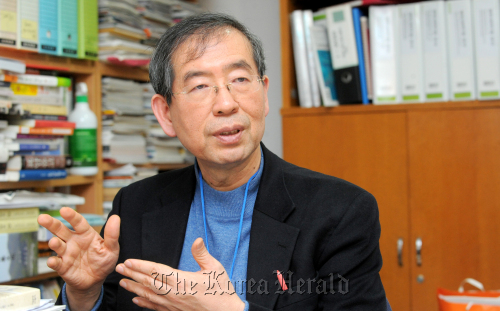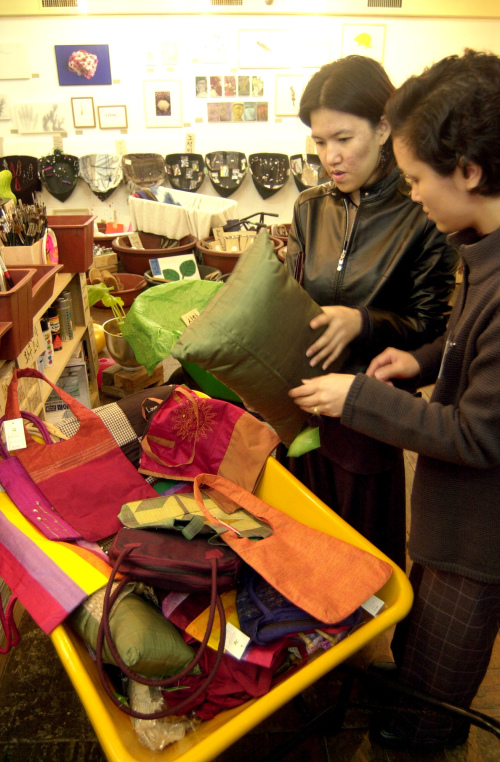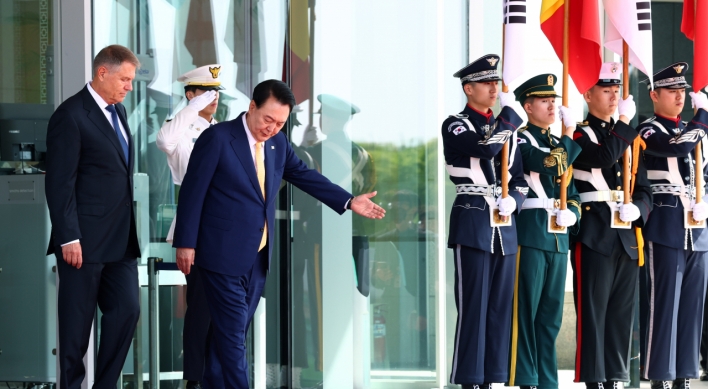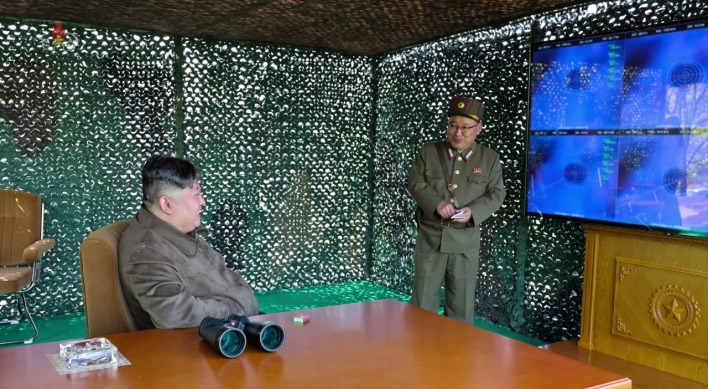Founder Park says Koreans are not stingy but lack system for monitoring charities
Park Won-soon, then a human rights lawyer, was surprised to drop in to an Oxfam charity shop in London back in 1991.
In the early 1990s, Korea’s tradition of sharing had weakened over the years of rapid modernization and democratization. There was almost no culture of giving in Korea.
For Park, who spent a year in the U.K. studying at the London School of Economics and Political Science, Oxfam’s concept of recycling donated goods for sale was a surprise.
Park Won-soon, then a human rights lawyer, was surprised to drop in to an Oxfam charity shop in London back in 1991.
In the early 1990s, Korea’s tradition of sharing had weakened over the years of rapid modernization and democratization. There was almost no culture of giving in Korea.
For Park, who spent a year in the U.K. studying at the London School of Economics and Political Science, Oxfam’s concept of recycling donated goods for sale was a surprise.

Inspired by the idea, he established the Beautiful Store 10 years later in Seoul, one of Korea’s first successful social enterprises.
“I had never imagined today’s success and positive response from citizens,” Park, the 54-year-old activist who calls himself a “social designer,” told The Korea Herald.
Recalling the early days when most Koreans had no idea about donation and sharing second-hand items, he said civil society also can be cultivated.
“When we plow a wasteland, even a small pebble sometimes disturbs the whole process. However, by overcoming such difficulties, we are becoming an advanced society,” Park added.
Until the early 2000s, Park was better known as a social reformist. In 1994, he co-founded the People’s Solidarity for Participatory Democracy, the nation’s most influential advocacy group, and led its campaign against corruption in politics and business.
He then established the Beautiful Foundation, a community foundation solely dependant on individual donations, in 2000. Kim Gun-ja, a former comfort woman during the Japanese colonial rule, was the first donor. She donated her life savings of 50 million won ($45,000).

Leading the donation culture in Korea, the foundation has staged a campaign to encourage citizens to donate 1 percent of their income or time, which it distributes again to underprivileged people and other public interest groups.
The group never goes out to streets for fundraising and individuals voluntarily donate money through its website, which Park said is “true donation.” The collected money surpasses 10 billion won every year, he said.
The Beautiful Store, founded two years later, now has 105 shops nationwide and two overseas stores, with 300 paid workers, 5,000 volunteers and an annual income of about 23 billion won.
The fair-trade “Beautiful Coffee” saw profits of 3 billion won last year.
A success story in Korea is always a great inspiration for developing countries.
“Considering cultural similarities and level of social development, Asian countries prefer the Korean model of sharing and reform movement to those in western countries,” Park said.
He suggested in recent conversations with Oxfam officials that MBA schools in the U.K. teach the idea of charity shops such as the Beautiful Store.
Oxfam, which has worked together with Park since 2002, is currently considering developing ethical trade workshops for MBA students in U.K. business schools, targeting students from underdeveloped countries.
Despite his success, Park said Korean civil society has a long way to go. Most grass-roots organizations in different fields are struggling financially. In advanced countries, the third sector makes up about 7 percent of GDP. Park said, however, the Korean figure would be less than 0.1 percent, with no official data having ever been collected.
“The Korean government has supported directly the programs done by each non-profit organization. However, it is impossible for public officials to oversee all the details of their activities and they lack expertise compared to those working in the field,” Park said.
“That’s why other advanced countries have set up private-run venture funds that monitor the management of the funds, not the individual recipient programs.”
Of course, the key issue here is credibility, he said.
The Beautiful Foundation and the Beautiful Store have disclosed their detailed expenditure through the internet. For better understanding of visitors and donors, they post a summary of the spending too.
They also make their salaries public by displaying the pay of each employee. As the executive director for the foundation, Park’s monthly income is 2 million won.
“I don’t think Koreans are stingy people. They have money and are willing to give. However, there is no social system they can trust and check out how their donated money is used,” he said.
Park, who is cited as one of the busiest figures in Korea, is also running private think tank, the Hope Institute. Established in 2006, the group collects, shares, develops and distributes ideas to change society in a positive way ― like a “hope factory” Park says.
Park was preparing to launch a new project helping small-business people introduce their products more effectively to consumers.
“There are always hopeless stories in TV news. However, I meet a lot of people working in the field and trying to make positive changes in our society. I believe that is the reason why we Koreans can continue to hope,” Park said.
In 2006, Park received the Ramon Magsaysay Award, which is known as Asia’s version of the Nobel Prize. The Ramon Magsaysay Award Foundation acclaimed him for “his principled activism fostering social justice, fair business practices, clean government and generous spirit in South Korea’s young democracy.”
By Lee Ji-yoon (jylee@heraldcorp.com)



![[AtoZ into Korean mind] Humor in Korea: Navigating the line between what's funny and not](http://res.heraldm.com/phpwas/restmb_idxmake.php?idx=644&simg=/content/image/2024/04/22/20240422050642_0.jpg&u=)



![[Herald Interview] Why Toss invited hackers to penetrate its system](http://res.heraldm.com/phpwas/restmb_idxmake.php?idx=644&simg=/content/image/2024/04/22/20240422050569_0.jpg&u=20240422150649)

![[Graphic News] 77% of young Koreans still financially dependent](http://res.heraldm.com/phpwas/restmb_idxmake.php?idx=644&simg=/content/image/2024/04/22/20240422050762_0.gif&u=)





![[Exclusive] Korean military to ban iPhones over security issues](http://res.heraldm.com/phpwas/restmb_idxmake.php?idx=652&simg=/content/image/2024/04/23/20240423050599_0.jpg&u=)



